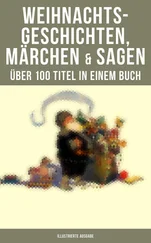But thank goodness there were others as well. The common people and the children. It was for them that Hosemann worked. His love for the people, and especially for Berliners, brought him into contact with the famous Adolf Glassbrenner, who first brought the people and dialect of Berlin to literature. In 1834 their first collaborative work was published: a book in the collection Berlin, wie es ist und trinkt . 5It was the model for a good many similar series of publications that were sold in paper shops at the time, as illustrated journals are today. However, these booklets, with titles like “Berlin in Color” or “Humorous Pictures of Soldiers,” “Berlin Town Gossip,” or “Strange Court Scenes,” were much smaller. You could easily fit one into your pocket without bending the lovely color picture on its front, which each of them had. But there was something else about these writings. Perhaps you know what is meant by the so-called pre-March period. That was the time before the outbreak of the March Revolution of 1848. Before the Wars of Liberation, the king of Prussia famously promised universal suffrage and then later went back on his promise. Instead, there was what is known as the reaction, during which everyone who wrote was closely monitored to ensure that nothing was written that the government did not approve of. How often in history have there been such times when everything printed was strictly controlled and, if it did not conform, banned; and how often have people who refused to back down searched for ways to say what they thought so that everyone understood them but the police could not hold them accountable. Such was the case of Glassbrenner, who said: “We are separated from the great mass of the people by everything, by eccentric habits and education, by money, by our speech, and by our clothes. Unless we join hands with the people and come to an understanding with them, no freedom is possible.” 6Glassbrenner created his famous Berlin characters to show the power of the common man and of his language, how much can be learned from him and, above all, how he cannot be kept forever at bay. Like Nante the Loafer, who represents the Berlin proletariat, and Buffay Bourgeois, typifying the Berlin citizen, who in his way thinks no differently from Nante when it matters most. And indeed, this was the case when a large portion of the Berlin bourgeoisie stood arm in arm with the workers of Berlin in front of the castle in 1848.
Such were the thoughts of this Glassbrenner, Hosemann’s collaborator. Hosemann, however, was a rather careful man, even a bit bourgeois. For instance, when in November 1848 he was reporting to a friend on the unrest in Berlin, his letter read: “I write to you now, my dear Schulz, of events as I myself experienced them, but I take the liberty of offering no further judgment as regards them. And I beg you likewise to please refrain from any judgments and other remarks not concerning the facts at hand. We will surely be able to imagine the rest. Understood?” 7It seems to have been a cowardly time back then in Berlin, and even our Hosemann had to play along a little. But he only needed to make pictures. And in principle he was most certainly at one with his friend Glassbrenner when he depicted, for instance, Nante the Loafer, as the Berliner who stood up for himself and even prevailed when facing an official endowed with significant authority. And now I will conclude, not by describing a picture by Hosemann, but by reading part of a court trial against Nante presided over by a court clerk. “Approach the bench,” says the clerk. “Great,” says Nante, as he approaches, brushing the hair from his face and assuming an imposing stance. “There. Now you can truly appreciate me, Herr Justice.”
CLERK: The defendant’s name?
NANTE: You.
CLERK: What’s that supposed to mean?
NANTE: Well, that’s what I say when I’m talking to myself. I wouldn’t call myself “Herr Nante.”
CLERK: I wish to know the defendant’s name. Is it not Nante the Loafer?
NANTE: Yes, I flatter myself with such a name. And don’t pretend you don’t know me. Who else would I be if not Nante? Nante remains Nante, the one and only.
CLERK: Born?
NANTE: Yep. Born I am. Je suis. Pardon me if I sometimes pour a little French into my talking.
CLERK: I’m asking where the defendant was born.
NANTE: I see, where! On Horse Street, but as a human. Before I was born I lived at my mother’s. After that I moved out and cried, because I grew two legs, and then ate.
CLERK: Eight legs?
NANTE: Ate, I said. With these teeth right here. But it’s bad luck that a guy gets teeth and nothing good to bite on.
CLERK: Religion?
NANTE: Religion?
CLERK: What religion are you?
NANTE: I see. I thought I was supposed to repeat after you. Protestant!
CLERK: Have you been under investigation once before?
NANTE: Heaven forbid, no! Twice! Once, when I was out of work, I investigated whether I could live on the wind, and then a little bit later I was under investigation here because I’d borrowed a couple rolls from a baker without telling him about it. Oh, and a third time I was also under investigation here, because I’d found a horseshoe.
CLERK: Investigated for that? Had they gone crazy?
NANTE: Crazy? Heaven forbid. Not as crazy as you … would think.
I found a horseshoe in the street and when I took a good look at it at home, there was a horse on it. That was some bad luck.
CLERK: Enough, enough.
NANTE: Great. ( He turns around and starts to leave. )
CLERK: Stop, you are not even close to being finished.
NANTE: I see, I thought you’d had enough of my chatter. Guess not, so much the better! Because I still have a couple stories to tell you. If you like gruesome ones, I’ll tell you about something that happened to yours truly along with my wife and three kids. How we were thrown out of our house just because we couldn’t pay our three thalers of rent.
CLERK: Very sad, but I don’t have time to hear your stories. I can’t go on any longer listening to you.
NANTE: Can’t go on any longer? I can’t go on any longer than I am, either. Whatever I do I’m just as long as nature intended me to be, and no longer. But I’m hungry and I ain’t getting served around here. The only thing served around here is justice and I ain’t biting. Well, so long, Herr Justice Server. 8
So now I’ve just shown you the speaking Nante instead of the drawn version. No matter that at the end of today Hosemann has crept a bit into Glassbrenner’s shadow. Because one day we’ll talk some more about Glassbrenner and then Hosemann will emerge again from behind him.
“Theodor Hosemann,” GS, 7.1, 124–30. Translated by Jonathan Lutes.
Broadcast on Radio Berlin, April 14, 1930. Benjamin dated the typescript “Berlin Radio, 14 April, 1930,” and for this date, the Funkstunde announced “Youth Hour (Berlin), Speaker: Dr. Walter Benjamin,” from 5:45–6:10 pm.
1Theodor Hosemann (1807–1875). Though he died in Berlin, he was born outside the city, in Brandenburg an der Havel.
2For this passage, see “Briefe von Theodor Hosemann” [Hosemann’s Letters], in Lothar Brieger, Theodor Hosemann, ein Altmeister Berliner Malerei: Mit einem Katalog der graphischen Werke des Künstlers von Karl Hobrecker [Theodor Hosemann, An Old Master of Berlin Painting: With a catalog of the artist’s illustrated works compiled by Karl Hobrecker] (Munich: Delphin, 1920), 103–4.
3Max and Moritz are the title characters of a popular German illustrated children’s book by Wilhelm Busch, Max und Moritz — Eine Bubengeschichte in sieben Streichen [Max and Moritz: A Story in Seven Pranks] (1865).
4Johann Wilhelm Hey’s “ Hundert Fabeln ” mit den Bildern von Otto Speckter [“One Hundred Fables” with Illustrations by Otto Speckter] first appeared anonymously in Hamburg in 1833 as Fünfzig Fabeln [Fifty Fables]; the complete edition ( Hundert Fabeln ) was first published in 1884.
Читать дальше












